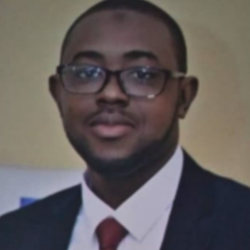




Atlantic connections: The PCC and the Brazil-West Africa cocaine trade
A Talk by Lucia Bird , Mouhamadou Kane , Gabriel de Santis Feltran , Isabela Vianna Pinho and Daniel A. Amankwaah
About this Talk
Cocaine trafficking through West Africa, following the well-established route from Latin America to the European consumer market, appears to be in a phase of sharp growth. Since 2016, the majority of consignments transiting West Africa begin their journey in Brazil. The Primeiro Comando da Capital (PCC) – the largest criminal organization in Brazil – is pivotal to understanding Brazil’s newfound importance for cocaine in West Africa.
Cocaine trafficking between Brazil and West Africa stretches back at least to the 1980s, but as cultivation in Latin America continues to increase and consumption in Europe has grown, more and more cocaine is being moved along this path. In 2018, only one West African country – Senegal – was in the top 10 destinations for cocaine seized in Brazilian ports; by 2019, after a bumper year of seizures in Brazil, Nigeria, Ghana and Sierra Leone had also pushed their way onto the list. Cultivation in Latin America reached record levels in 2021, and in the following year an unprece-dented 24 tonnes were seized across West Africa.
In this webinar, we will focus on the flow of cocaine between Brazil and West Africa, which largely supplies the lucrative European consumer market, and in particular on the role of the PCC, which straddles various illicit supply chains.
The research has drawn on various data collection techniques but rests primarily on field observations of the retail trade and transit of illegal goods in South America, West Africa and Europe between 2015 and 2022. These observations, described in detail in the authors’ field notebooks, were supplemented by formal and informal interviews with those involved in the cocaine trade, from the South American borders to the retail trade spaces of Europe, allowing us to trace the journey of cocaine through the different nodes of the value chain.